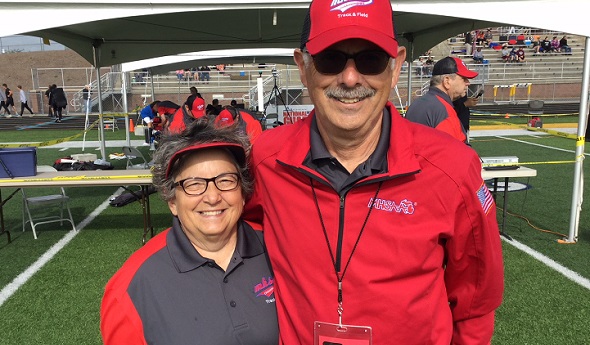
Be the Referee: Untimed Down
October 13, 2016
This week, MHSAA assistant director Mark Uyl discusses untimed downs in football, a hot topic given a scenario involving one of our in-state universities earlier this season.
Be The Referee is a series of short messages designed to help educate people on the rules of different sports, to help them better understand the art of officiating, and to recruit officials.
Below is this week's segment – Untimed Down - Listen
A few weeks back, the Central Michigan-Oklahoma State football game generated a lot of conversation about the playing rules when any period gets extended with an untimed down.
Many times announcers will wrongly talk about an accepted defensive penalty, that it then means the offense gets one more snap. Under high school rules, whenever there’s an accepted penalty on the last play of the period, there is one untimed down. The only exceptions to this – just like the college rules – are those penalties which also bring about a loss of down.
NOTE: Penalties which bring about a loss of down are: Intentional Grounding, Illegally Handing Ball Forward, Illegal Forward Pass and Illegal Touching.
Past editions
October 6: Soccer Penalty Kick Change - Listen
Sept. 29: Preparation for Officials - Listen
Sept 22: You Make the Call: Returning Kickoffs - Listen
Sept. 15: Concussions - Listen
Sept 8: Equipment Covering the Knees - Listen
Sept. 1: Play Clock Experiment - Listen
Aug. 25: Clipping in the Free Blocking Zone - Listen

The Official View: The Couple That Officiates Together
By
Brent Rice
MHSAA Assistant Director
October 8, 2018
By Brent Rice
MHSAA Assistant Director
This key to a long and happy marriage is officiating school sports.
Richard and Christine Lee from Brown City are proof. Richard has been officiating with the MHSAA for 42 years, and Christine has been an MHSAA official for 23 years. And this spring they celebrated their 45th wedding anniversary!
Of course, they celebrated in part by working a meet together, as seen in the photo above.
It’s Official!
Rules Meetings: With winter sports just around the corner, many of you already have begun getting into officiating shape and studying up on rules and mechanics in preparation of another great MHSAA season. Don’t forget to tend to the administrative requirements for postseason tournament consideration. The first Winter Online Rules Meetings become available starting today.
Here is the schedule for this year:
Oct. 8 – Basketball, Ice Hockey, Competitive Cheer and Wrestling
Oct. 15 – Gymnastics and Swimming
All Online Rules Meetings will close Dec. 13 at 11:59 pm. Don’t miss out on postseason opportunities because you put off (then forget) these requirements.
Rule of the Week
CROSS COUNTRY As A1 reaches the 3,000-meter mark, the umpire notices that the runner has multi-color compression shorts with a manufacturer’s logo that extends beneath the runner’s shorts but above her knees.
Ruling: There is no violation and no warning should be given. New NFHS cross country rule 4-3-1 provides that any visible garment(s) worn underneath the uniform top and/or bottom are considered a foundation garment. A foundation garment is any item worn under the uniform top and/or bottom and is not subject to logo/trademark/reference or color restrictions.
It’s Your Call
FOOTBALL On this play, the right guard pulls as the running back receives the handoff. The play results in a half-yard loss, but is there more to this play? What’s the call?
Last Week’s IYC Ruling: In order for the first contact to be considered a “block,” some part of the player’s hands must extend higher than the top of the net. This is a very close call as to whether her hands meet this – probably too close to consider them “below.” (Click to see the video from last week.)
The more pertinent aspect that applies to this play is whether she is still a blocker based on her playing action. One thing we should look at to determine whether this is a defensive or offensive play is arm swing. When the player in the clip takes a swing at the ball, this becomes an attack. As a result, the second contact by the front row member of Team R should be called a double hit violation.

